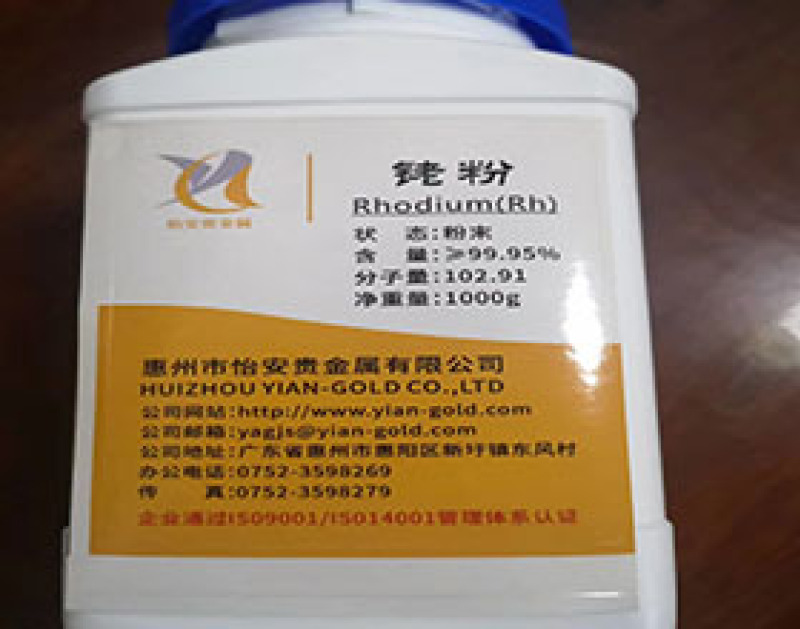Rhodium exists in platinum ore and can be collected and produced during the refining process. The color is silver white, with a metallic luster and opacity. Hardness is 4~4.5, relative density is 12.5. The melting point is high, at 1955 ℃. Stable chemical properties. Due to its corrosion resistance and good luster, rhodium is mainly used in the electroplating industry. When electroplated on other metal surfaces, the coating is sturdy, wear-resistant, and has good reflective effects. Valences 2, 4, and 6. The first ionization energy is 7.46 electron volts. At moderate temperatures, it can also resist most common acids (including aqua regia). It can react chemically with hot concentrated sulfuric acid, hot hydrobromic acid, sodium hypochlorite, and free halogens at 200-600 ℃. It does not react with many molten metals, such as gold, silver, sodium, and potassium, as well as molten alkali.
Rhodium, a precious metal, plays an important role in industrial consumption. 90% of the world's rhodium is mainly used as a catalyst for automotive exhaust, and it is also commonly used as a hydrogenation catalyst, thermocouple, platinum rhodium alloy, etc. It is also commonly plated on searchlights and reflectors, used as a polishing agent for gemstones and contact components for electricity. Rhodium can also be used as a coating for other metals. However, the recovery and purification of rhodium is an important factor affecting its industrial application, especially its separation from other precious and base metals is a recognized challenge in precious metal extraction metallurgy. Ordinary rhodium recovery solution not only contains a large amount of impurities such as sodium, potassium, aluminum, iron, nickel, copper, calcium, etc., but also contains some other platinum group metals. Due to similar chemical properties, these platinum group metals interact with each other











